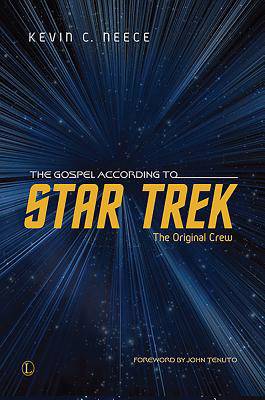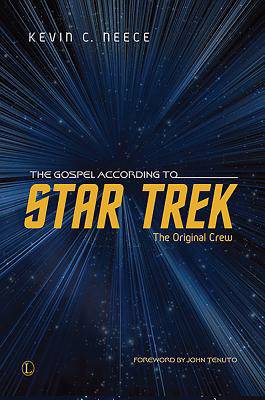
- Afhalen na 1 uur in een winkel met voorraad
- Gratis thuislevering in België vanaf € 30
- Ruim aanbod met 7 miljoen producten
- Afhalen na 1 uur in een winkel met voorraad
- Gratis thuislevering in België vanaf € 30
- Ruim aanbod met 7 miljoen producten
Zoeken
€ 24,45
+ 48 punten
Omschrijving
What's Christian about Star Trek? Nothing. That's the way most people see it and that certainly seems to be the way the franchise is intended. There's no question that the Trek universe is based on a doggedly humanistic worldview and is set in a future time when religion has essentially vanished from Earth. If that's the case, how can there even be a Gospel According to Star Trek? In The Gospel According to Star Trek, you'll discover how the continuing voyages of Kirk and company aboard the Enterprise - from the Original Series to Star Trek Beyond - tell us more about our human quest for God than you ever imagined. You'll learn how Star Trek creator Gene Roddenberry's own spiritual quest informed the franchise, what he and the series really have to say about God and religion, and the amazing image of Christ contained in Star Trek's most popular character. You'll also see how Star Trek can help us recover a deeper, more fully human gospel that embraces our humanity instead of denigrating it and echoes the call of both Spock and Christ: 'Live long and prosper!' (John 10:10).
Specificaties
Betrokkenen
- Auteur(s):
- Uitgeverij:
Inhoud
- Aantal bladzijden:
- 216
- Taal:
- Engels
Eigenschappen
- Productcode (EAN):
- 9780718895242
- Verschijningsdatum:
- 25/01/2018
- Uitvoering:
- Paperback
- Formaat:
- Trade paperback (VS)
- Afmetingen:
- 152 mm x 226 mm
- Gewicht:
- 340 g

Alleen bij Standaard Boekhandel
+ 48 punten op je klantenkaart van Standaard Boekhandel
Beoordelingen
We publiceren alleen reviews die voldoen aan de voorwaarden voor reviews. Bekijk onze voorwaarden voor reviews.











